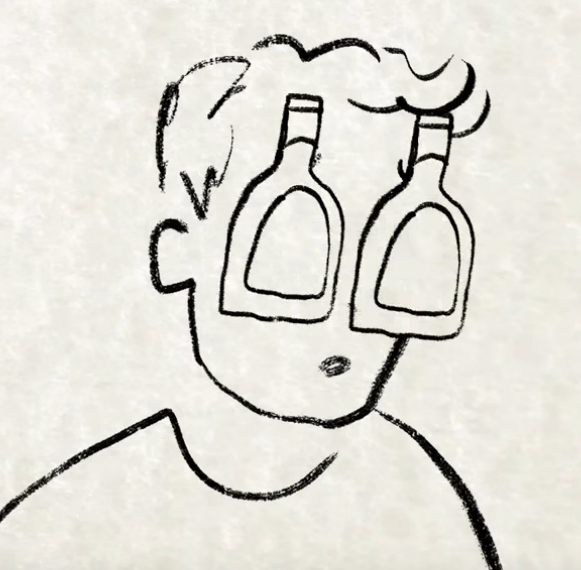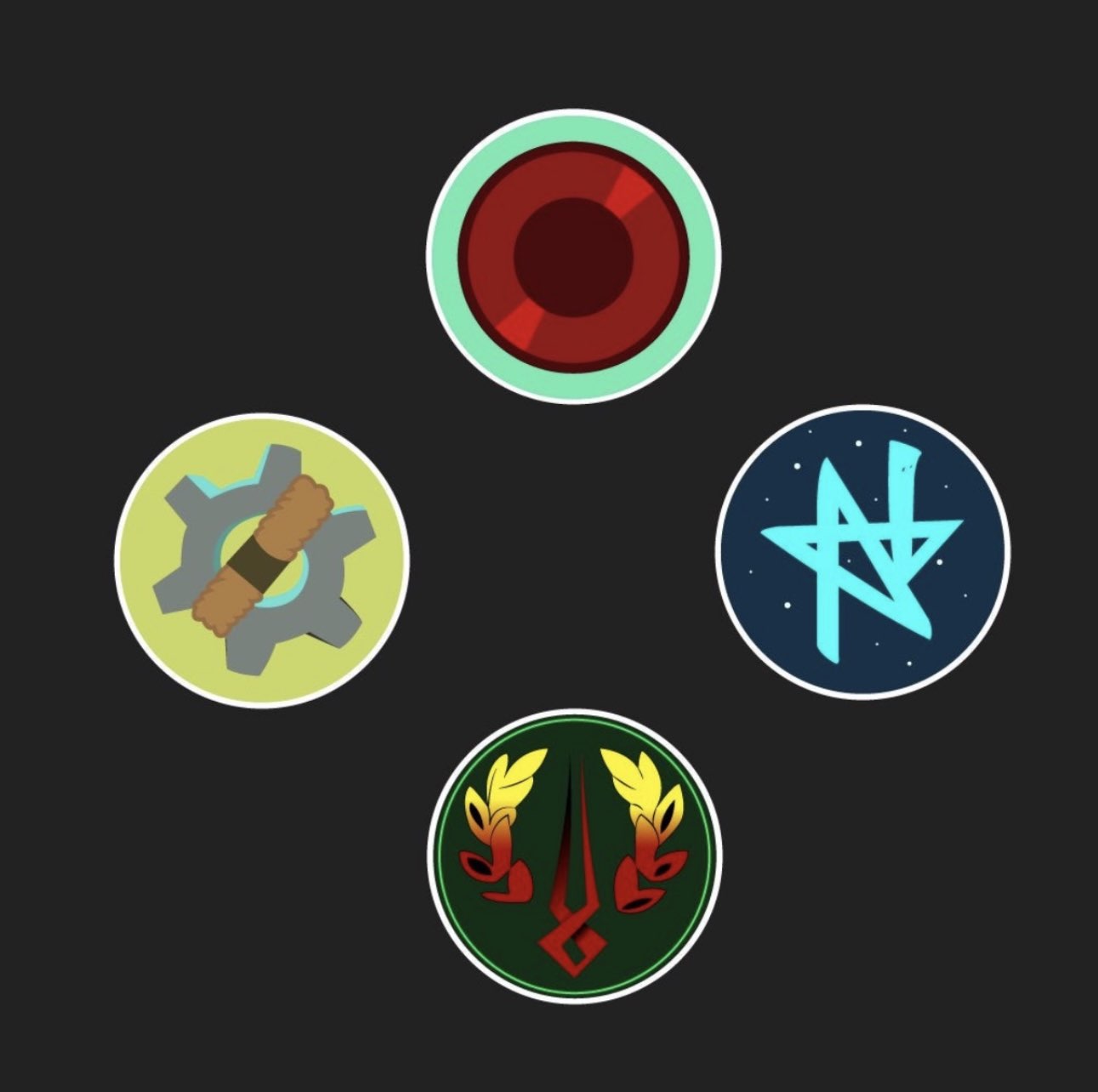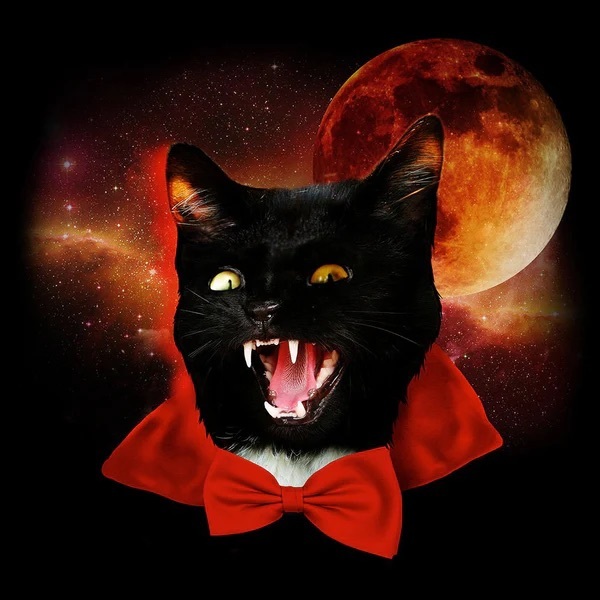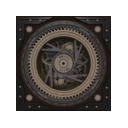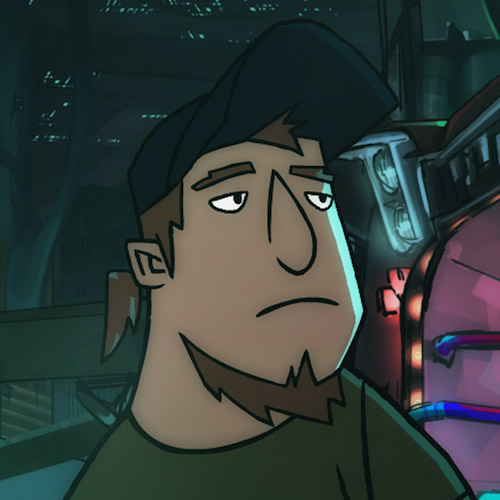I found this after reading and responding to this post here about early Trek fans’ prejudicial negative reaction to TNG. One of my responses (see here) was to point out that any fans of the progressiveness of Trek ought to have been mindful of the room for improvement over TOS, with female representation being an obvious issue. I posed the question “when did Trek start consistently passing the Bechdel test”, thinking that it didn’t start happening until Voyager, which those hard-line TOS fans would never have allowed to be made (along with TNG and DS9).
And of course, someone’s done the analysis with graphs and everything! Awesome! (though note the links to tumblr posts at the bottom that are now behind a sign-in wall … fun).
The results aren’t surprising to me, generally. I expected TNG to do worse, but also thought it did a pretty good job with female guest characters so it might score higher than I thought. DS9, I expected to do better than TNG, which, to my surprise is only marginally true. But I didn’t expect, from memory, how much of that is attributable to so many characters breaking off into (hetero, yes even Odo) couples. Voyager obviously does very well. And Enterprise … well we shouldn’t expect much of that … honestly, for me, this cements the show’s status as a blight on this era to lean so masculine straight after voyager.
And of course TOS shows its age, which, surely by 1987, good Trek fans should have been aware of?
Beyond that, I can’t help but think of SNW here, which, IMO has a wonderful cast/crew that’s well balanced and which I’d expect to be doing well on the Bechdel (as low and superficial bar as it is). But, as it starts to transition into a TOS prequel/reboot (as it is trending from S2 and as the show runners are indicating), all of those TOS characters are going to carry that 60s baggage with them. They’ll all be men (Uhura is already there!) and all be special miracle workers. La’an’s story has already been sidelined into a Kirk romance. Pelia the engineer was already somewhat substituted by Scotty the engineer. As it goes on (presuming it does), I think it could begin to look awkward once you squint.
EDIT: For those asking about new seasons/series … I found this page/blog by the author of the parent blog post … which provides data for some new Trek (Disco and Picard S3 and SNW S1 it seems).
Somewhat notably to me (though only one data point) … the one episode of SNW S1 that (clearly) fails the test is the one with Kirk in it.
In a similar vein though, while Disco generally does well (best of all Trek so far it seems), the author notes that Season two had the most episodes that were close to the line, because Michael’s arc was so intertwined with her search for her brother, Spock. That is, the more new Trek leans into TOS nostalgia, the worse this gets.
Not even one episode of season 1 TOS passed it. For shame. What were the 60s thinking?
Edit: /s by the way. I’m aware of the culture in the 60s.
I mean, it was another time. Their first pilot had number one, and that didn’t fly. But that’s the point, it was another time, and staying stuck in that time will always have drawbacks. As the article points out, the TOS Kelvin timeline reboots don’t do well on the bechdel at all, and it’s not a coincidence. If SNW heads toward more TOS prequel/reboot territory, you’ll probably see it in bechdel data like this.
The first pilot literally had them talking about how weird it is to have a woman on the bridge.
That was likely added to quell reactions to a woman as a first officer. But the Network had notes even so on how negatively test audiences reacted to Majel Barrett’s Number One.
Roddenberry tried another tack with blonde, beehived, Whitney in a miniskirt as Yeoman Janice Rand. She was supposed to be a woman main character but even that was too much for the executives and she was written out by the end of the first season.
A yeoman is an odd position to write into a series.
It’s one of the most senior NCO roles, and one that interacts regularly with a captain. It shouldn’t have been portrayed as a secretary.
Roddenberry was told he couldn’t have both an alien (Spock) and a woman as a first officer.
It shouldn’t have been portrayed as a secretary.
That’s exactly what a yeoman does on a modern naval ship.
From wikipedia:
In the modern Navy, a yeoman is an enlisted service member who performs administrative and clerical work.
That’s understating the role.
Administration does not equal secretary, except in the old British usage where the Secretary to the Prime Minister is what’s now called a Chief of Staff.
A yeoman is one of the most senior NCOs, responsible for communication with command and the admiralty, also responsible for performance assessments of all the enlisted ranks and more junior NCOs.
A petty officer performing chiefly clerical duties in the US Navy.
Clerical duties don’t make for exciting tv. It may be important in real life, but doesn’t work for tv. [Insert joke about TPS report.]
TOS is peak “product of its time”
Oh absolutely. I should put a bold /s up there.
That’s a bit of a low-resolution phrase.
Of course it obviously was a product of it’s time - but it did push the boundaries as far as it could, and had to fight for some basic scenes.
Unlike many other “products of their time” that didn’t even try and move the needle for positive representation.
Isn’t this just a meme test to raise awareness? I see it often being failed because women talk about their straight romantic interests. I guess that’s something most men could even do without in their entertainment. My takeaway is that more diverse groups of writers should be hired, to give us fresher stories.
It’s a super low bar. The story just has to have two women talk about something other than a man. Troi telling Beverly how hot Yar was would technically pass the test, yes.
Correct conclusion though, more diverse groups of writers is definitely the way to go.
Yep, using it as a literal test seems to miss the point, namely that there is a significant %age of films and TV that fail to meet even that low a bar.
It’s a low bar in the sense that a show can be misogynistic and yet pass the test.
But the show can also be a strong case for equality and fail it (ie. have both males and females involved in all conversations).
If a movie has only 2 characters, a man and a woman, and the movie is all about their relationship, then passing the Bechdel test will be a high bar for that movie.
The article mentions how many episodes in Voyager were very Janeway-centric, and yet didn’t pass the test because in all the conversations there was one way or another one male involved, even though the focus was on Kathryn.
I feel that it’s not a very good test in general. There are also shows/movies that don’t pass the reverse Bechdel test (having 2 males talk about something not involving a female) and yet I wouldn’t say those shows are sexist.
It’s a simple test that’s easy to apply and easy to misapply. A more accurate test has to look at more info.
Pixar tracks what percent of the lines are said by female characters, for example, and strives for balance across their movies.
No surprise with Voyager. On the ship of the valkyries, there are plenty of opportunities for women to talk to each other about starship stuff.
I thought it was widely agreed that the bechedel test isn’t a very good metric? Like lesbian porn passes, but a lot of very good ST episodes don’t.
I think it’s more accurate to say that it’s such a low bar that it shouldn’t ever be failed, unless the reverse bechdel test is also being failed in more or less equal measure. Passing it need not mean much. Failing it, regularly, means plenty.
Also, porn basically has no relevance to the assessment of gender diversity in drama.
IIRC Measure of a man doesn’t pass, and thats the best episode imo. And imo, the test is mainly good for rage bait and not much more than that.
deleted by creator
Ok, maybe ragebait isn’t best phrase. Maybe “made to look worse than it is” or “finding something to complain about”
deleted by creator
Sorry my friend … that’s a downvote from me.
Measure of a man doesn’t pass, and thats the best episode imo.
This isn’t about single episodes or even whether an episode that fails can be good by other standards. Flipping this, would the episode have been worse if two women had a conversation about something other than a man? I’d imagine not at all, so why didn’t it happen?
And imo, the test is mainly good for rage bait and not much more than that.
I haven’t seen any rage here … unfortunately, your post is the most angsty I’ve seen, which, I have to say, implies that you’re uncomfortable with something like Trek or TOS being critiqued or diversity issues in general.
Beyond that, it’s a simple “test” that anyone who actually uses or talks about will acknowledge is simple and flawed, but is also relevant in talking and thinking about gender diversity in how much it if failed. Just look at the graph of pass rates for Trek over time … basically a steady increase (until ENT). That more or less shows that it’s not a meaningless hollow test but actually measures something real.
If you don’t care about gender diversity or don’t think it’s that important, would you care to explain why?
I think the story comes first. A diversity first approach just leads to a terrible story. Something like the Shawshank Redemption, thats a good story but it has no women. And when you have diversity first, you (generally speaking) don’t get good stories. Its not impossible, to be sure, but it usually turns into gimmicks and token characters.
Something like the Shawshank Redemption
In the original Stephen King novella, Morgan Freeman’s character is a white Irish guy. I look forward to hearing all about your newfound hatred of this forced diversity.
But it wasn’t a gimmick. No one pointed to him and said “Look at our token! Hes black! Isn’t that impressive?”
Could you please point me in the direction of the goalposts? I swear you had them right here a moment ago…
You’re commenting this on a Star Trek discussion forum. A show that was founded on the idea that diversity is a strength. Gene Roddenberry specifically cast women in positions of authority, and non-white actors to be the crew of the Enterprise because he wanted to portray a future where humanity had moved beyond such petty bigotries.
A franchise which has persisted for 57 years, and is recognized the world over, founded on the “diversity first” approach you’re lamenting.
Infinite Diversity in Infinite Combinations
But it wasn’t. No one looked at Worf or Guinan and made their race part of the marketing.
Do you have an example of something where that is happening?
I agree with you…to a point. Story should come first, but if a story fails the Blechdel Test, there should be a good, defensible reason for it, and there are good reasons to fail the test, e.g. a story takes place exclusively on a Royal Navy ship circa 1800; there were no women there, so it wouldn’t make sense to pass. I’ll buy it.
In Star Trek though, there are fewer defensible reasons because of the nature of the show. Off the top of my head, “Measure of a Man” could have Capt. Louvois discussing Android rights with Dr. Pulaski (without mentioning Data) or Troi expressing to Guinan how upsetting it is that these trials are necessary. Does the lack of a scene like that make the episode bad? No. It starts a discussion, though, which is the primary purpose of the test to begin with. In the case of “Measure of a Man,” a scene like that would have probably been left on the cutting room floor to make way for a tighter story that just happened to not have women at the center of it.
Also, reasonable people can disagree on how important a particular scene could be, but the discussion of female representation is still an important one. The goal isn’t to “pass” the test for everything, but there shouldn’t be an overwhelming amount of failures of the test.
@Blamemeta Have you actually *seen* Star Trek?
Yeah? Ive seen all of TNG and DS9, and Voy. Ive seen most of Enterprise too. I gave Picard 3 episodes before before I wrote off nutrek.
(My favorite episode is outrageaos okana, and I love quarks episodes)
@Blamemeta TOS, and Roddenberry’s original vision, was all about diversity/inclusivity.
The test was never meant to be a metric for whether something is good or not. It’s meant to be a metric for representation of women in media.
The test is based on this 1985 comic from Alison Bechdel’s “Dykes to Watch Out For”:
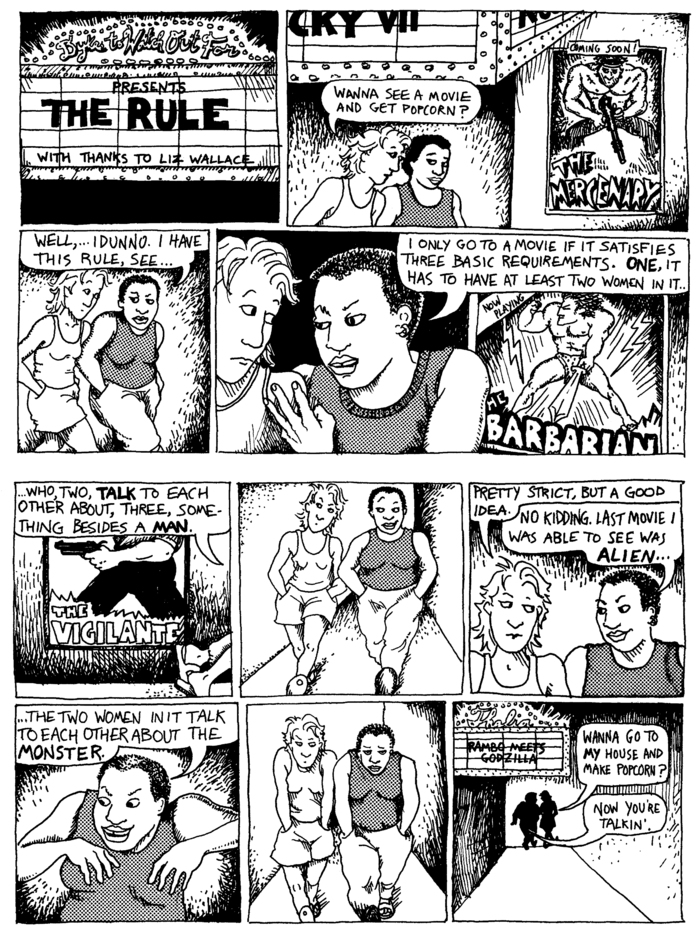
With that history in mind, I don’t think the fact that lesbian porn passes is a shortfall of the test. The test was created by lesbians, after all.
The Bechdel test doesn’t tell you if something is ‘good’ or not, you mainly use it to identify trends in media overal. The fact that voyager predictably scored highest is, to me, a sign that it does measure something real, which I’d consider to be a hallmark of what a good metric is supposed to do.
Does the bechdel test take the job of the characters into account? For example if Dr Crusher is talking to Dr Selar about a patient’s health does the patient’s sex alone decide if the talk passes?
From the article:
Another question I considered was whether to pass women talking about a man in a work-related (as opposed to romantic) context. There were times when it seemed like it would make sense with the spirit of the test—like passing Dr. Crusher and Nurse Ogawa talking about a collapsed male patient’s medical condition—but it seemed to open the door too much. Ideally, an episode would have more than one scene of women talking, so it wouldn’t be the determining factor.
Part of why the Bechdel Test is so useful is that it’s such a low standard that it’s surprising that so many things fail, and it’s hard to argue there’s not room for improvement.
The test is that two women (with names) have to talk about something other than a man. A male patient is probably an edge case where its effect would depend on who is running the test (where these things prop up all the time). Though, again, with the bechdel test, the point is that’s a very low bar. That an episode may pass the test based entirely on whether a male patient is a man or a patient, itself, is part of the point of the test, and, whether the episode passes or not, it certainly and deservedly will attract critique from any bechdel test assessment.
I’m amused at Voyager not hitting close to 100% for every season with Janeway in the lead. Like, season 3 only has ~65%?!
I don’t have clear memories of VOY S3 distinct from the other seasons, but I’m guessing it’s about then that the writers don’t know what to do with Kes any more and that’s a big part of it. Of course, once Seven is so prevalent in seasons 4 and 5, it basically goes to 100%, with Janeway and Seven having a personal relationship and neither being sidelined by any romantic plot lines (kinda a big deal, especially for 90s, IMO). The author makes a good point that failing the bechdel test in Voyager’s case wasn’t always a bad thing from a feminism point of view because they were often Janeway centric episodes that just had talking to lots of men.
I kinda think Voyager failing the test despite Janeway is still a symptom of a representation issue. The test was designed because there are plenty of fully fleshed out female characters in fiction, but usually they exist as exceptions in a man’s world and creators still feel too awkward writing women to have two or more of them having meaningful exchanges.
I’d say that despite Voyager being a trailblazer for representation with Janeway, it still had these exact issues. At least until Seven of Nine came along.
It’s still important to note that the test is in no way a formal analysis, and not even its creator claims this.
I kinda think Voyager failing the test despite Janeway is still a symptom of a representation issue.
For sure … the test is flawed. But an episode full of Janeway that fails the test is surely something very different from an episode that passes only because Beverly and Crusher have a quick exchange in a meeting.
an episode that passes only because Beverly and Crusher have a quick exchange in a meeting.
Ok, I know this was probably meant to be Troi and Crusher, but in Star Trek it’s not impossible, so I found it funny. Riker had the transporter duplicate, not Crusher!
That voyager doesn’t get 100% represents a failure in the fundamental concept of the test.
I’d disagree and say that it demonstrates its flaws (as the author of the linked post says also). But there is no reason to think that it meaningless that Janeway doesn’t talk to other women about something other than a man.
That’s a fact, in some episodes, with some meaning independent of whether the episode otherwise has plenty of dialogue delivered by its female lead. Would a TOS episode have ever failed the reverse bechdel test? No, Kirk had plenty of men to talk to and did so about many things other than women. Why not Janeway? Because the show, in many episodes, surrounded her with men. Paris, Harry, Chakotay and Tuvok surround her on the bridge, while Kes, B’Elanna and Seven are often “downstairs”. The test surfaces these aspects of the show, if you think about it for a moment … and I don’t think that’s a failure of the test at all.
Except it doesn’t surface “those aspects of the show”
The fact remains that those three characters are easily the three most critical and important character on the ship. Which is one of the primary flaws of the test. It doesn’t test their agency. On that alone, the test is flawed and cannot accurately represent Voyager.
If you take Enterprise on the other hand, then that legitimately fails since there is a vulcan-human relationship so bad the character even talks about it with her future self.
Well, you know, thinking about it, an awful lot of Kes’s life revolves around Neelix and the Doctor, with occasional training by Tuvok. I suspect a lot of her dialogue was about one of the three…
Hold on… A show getting 100% represents the entirety of its content NOT having any woman characters talking about a man correct?
Last I checked, women do indeed talk about men, and men about women… So to have a 100% pass would be… Unnatural.
The test should ideally never be passed with 100% (at least over the course of several episodes) - because that’s just not how humans behave - but then it shouldn’t have a low score either.
@MaxMouseOCX @startrek That’s not the criterion for the Bechdel Test — it’s ONE conversation between two women that’s not about a man.
Oh… ONE conversation… Fair enough, that’s actually surprising then; surprising that I haven’t really noticed.
It’s interesting to me that Voyager does that much better than TNG. Both shows had the same number of women in the main cast (Crusher, Troi, Yar/Guinan vs Janeway, B’Elanna, Kes/Seven) so other things being equal there should be similar number of opportunities for conversations that meet the test.
Obviously Janeway being the captain (and therefore a more prominent character, even within an ensemble cast) should give Voyager a boost, but I hadn’t anticipated the difference would be so extreme!
Guinan only appears in 29/176 episodes. Yar was in 28/17 6 episodes. So for the majority of the run there’s essentially only two main cast.
Wow - I hadn’t realised Guinan was in that few!
The relationship between Janeway and Seven was heavily emphasised and not distracted at all by either character having any romances. Moreover, Seven, at least in seasons 4 and 5, is basically as major a character in the show as Janeway, which means it had two female leads, who’s whole relationship basically passes the bechdel test, not just a one off line every episode.
Janeway takes Torres under her wing a bit too, and talk shop often. I think the rise is almost exclusively due to the Captain being a woman and having at least a single head of staff be another woman means any episode the captain has to consult that character means it will pass. The 7 bit is just gravy filling in episodes that isn’t the case.
Great point. I did think that Seven and Janeway (who I agree were a very prominent pairing - akin to the attention given to Data and Picard in TNG) would help Voyager, but then discounted it a bit by that pairing only even existing from season 4 onwards. I don’t think that’s enough alone to explain Voyager doing 42 percentage points better than TNG (44.9% vs 86.9%), but it would certainly have helped a lot!
It sounds like the issue was that the two primary female characters in TNG were the doctor and the counselor. Whenever the two of them talked professionally it was probably going to be about a patient, and there was a good chance the patient would be male. For VOY, when the captain and chief engineer communicate professionally it would usually be about a piece of machinery, which would of course not be male.
That’s a fair point. On reflection, I also seem to recall that some of the Crusher and Troi convos were also literally about their personal relationships.
Article’s from 2014. I’d really like to know how the more recent shows have faired.
Did a search and found this: https://trekkiefeminist.com/category/bechdel-wallace-test/
Maybe a separate post should be made to share … seems like a good resource on this.
Nice one!
The question I was wondering: SNW passed with 9/10 episodes in season 1.
Disco was 93-100%, Picard 90-100%. They don’t have Prodigy or Lower Decks, though.
The initial article left we wishing for more current information. Thanks!
Now do Lower Decks and Strange New Worlds
I think Lower Decks would be difficult to not get a 100%. 4 of 8 starring cast members are women.
Very, very little romance in it too.
Quite a lot of horny though… 😳
I’d be curious to see how the newer shows stack up. I’d bet they’d do a bit better, but it’s hard to know. For example, Discovery has Burnham and Tilly, and they even share quarters so they are likely to talk a lot, but it is still a pretty male dominated cast. Lower Decks on the other hand, I’d be surprised if it didn’t get a 100% since half of the starring characters are women (Mariner, Tendi, Freeman, T’Ana).
Voyager, where you have two women(and later three) in very high ranking positions on the ship should easily pass.
Arguably DS9 too, since you have a similar situation ŵhere two women have critical roles on the station. The show even has at least one scene that shows that the test is flawed.
That scene being Worf’s introduction to Kira and Jadzia, where Kira and Jadzia are talking about a relationship based situation for comedic effect.
The article linked shows voyager pretty high, but DS9 surprisingly low for how many women are part of the show.
I feel like DS9’s problem was that Kira and Dax never really had too many situations they would interact with each other. A science officer wouldn’t need to report a lot to the first officer. Hell, they even had entire seasons in which they were never together on camera.
Half of Jadzia Dax’s dialog was gossip, especially about relationships.
And almost all of Kira Nerys’s personal life was about relationships.
Blame Berman.
[Yes, not literally half. It’s hyperbole. Don’t @ me.]
I liked the Kira Nerys personal life stuff. I feel like it rounded out her character to see stuff like her dealing with dead lovers and going to bajorian church
Wow I was shocked how low enterprise was. I figured it did better. As for the newer shows I have to imagin that SNW passes this test and for sure lower desks. I think the other newer show might struggle.
I was not surprised by Enterprise. I hate watched the the whole series. It was a thinly veiled male power fantasy trying to recapture the bravado of Kirk.
Yea I said it in the parent post … seeing this data basically, in my mind, cancelled that series. Only something wrong could have happened for it to happen after DS9 and VOY. I’m guessing the real Berman showed through or something??
I think T’pol only ever talked to Hoshi to tell her that she smelled bad
LOL … whether true or not!
Enterprise, starring
Tim AllenRay Romano as Captain Archer
I saw it when I was a lot younger and have gone back since mainly because it ends when it was just getting good. But I honestly can’t remember a lot of the inter character relationship which isn’t a good sign.
Oh yea … I thought about lower decks, and once again, I’m guessing it shines brightly as a good Trek show. Mariner and her Mum, +Tendi and Mariner probably pass the test every episode.
I wasn’t shocked. I dropped Enterprise in my late teens because even though I wasn’t yet running into the discourse that’d pop up later re gender roles, the show was just creepy with T’Pol, and the male cast was not nearly as interesting or charming as the male cast of any of the other Treks.
I basically noped out before it was done airing due to the sexism. It was that obvious to me even before I had any education on the subject.
Also … tangentially … is artemis.camp a kbin instance affiliated with the app in some way? Are you a/the developer for the artemis app??
For level setting, I would like to see the results of the “reverse Bechdel” test: a scene where two named male characters talk about something other than a woman.
The numbers will surely be higher than for the standard Bechdel, but I doubt they are 100%: for example, any episode primarily about heterosexual romance will risk failing both tests. TOS seems like it should hit that mark pretty reliably, but the prevalence of episodes where Kirk gets stuck on an alien world and spends most of his time chatting up a lady cut into the odds. (Likewise if we were to take literally Kirk’s absurd characterization of the Enterprise as a woman, but… no). DS9 and TNG will run into problems with their volume of mixed-gender conversations, and for TNG especially the prevalence of significant female guest stars who male characters are likely to be discussing will cause some failures. Etc, etc.
To be clear, we know damn well that Star Trek has had problems with sexism, with instances both subtle and gross (Qpid and clay pots, anyone?). The Bechdel test also seems to be accepted as both a ludicrously low bar and an unreliable measure, but I have yet to see it put in appropriate context against the reverse test. What does it tell us if 98% of Trek episodes pass the reverse Bechdel? or if “only” 75% do? Does Voyager’s 86.9% standard score exceed or fall flat relative to their reverse Bechdel? Etc, etc. I would posit that the relationship between the Bechdel and reverse Bechdel should tell a pretty strong story about the level of subtle sexism in how the show is written, while an aggregation of the two scores is mostly just a measure of how (in)frequently the characters are chatting about their coworkers.
I take your point. DS9, as the linked article’s author points out, scores worse on the bechdel over time because characters get paired off into couples more and more, which would arguably show in the reverse bechdel too.
Given the numbers and the low bar of the bechdel, some quick sampling could probably be done to get a picture. Select 10 episodes that pass the bechdel test and 10 that fail, maybe some from TNG ans some from voyager, and we here collectively try to see if they pass/fail the reverse bechdel test in a group effort?
My personal bet is that until the bechdel pass rate goes up into ~90%, your point won’t really fly and the reverse will be passed all of the time … still interesting to find out.
Test definition
- Two named men
- Have a conversation
- about something other than another woman
My personal bet is that until the bechdel pass rate goes up into ~90%, your point won’t really fly and the reverse will be passed all of the time … still interesting to find out.
In the era of “just asking questions”, I certainly understand any implicit assumptions that I’m oh-so-cleverly concealing some ill-conceived “point” about feminism. Certainly a case can be raised that by presenting a possible chink in the supporting evidence of your post is an inherently disruptive and destructive act; clearly your broader point about closet bigotry affecting fan biases is both correct and worth emphasizing. I’d far rather strengthen your argument than tear it down. I hope that’s ultimately what I’m doing here.
Given the numbers and the low bar of the Bechdel, some quick sampling could probably be done to get a picture. Select 10 episodes that pass the Bechdel test and 10 that fail, maybe some from TNG ans some from voyager, and we here collectively try to see if they pass/fail the reverse bechdel test in a group effort?
I don’t think I would trust the results of this, unfortunately, as there’s probably a reverse correlation between the Bechdel and reverse Bechdel tests; in a sample this small that would pollute the results. For example, take any episode where two characters of the same sex are stuck together in some sort of trouble. That episode will surely pass one of the tests (Bechdel for two women, reverse for two men) but has an increased chance of failing the other because much of the dialogue for the rest of the characters is likely to revolve around the plight of the imperiled pair.
…which isn’t to say that what you suggest isn’t worth the attempt. Certainly raising an issue and then shooting down a proposed solution to it isn’t very helpful. Episode transcripts are out there; maybe there’s a software solution here? Automatic identification of conversations between two characters would be imperfect but manageable, running that dialogue up against a list of names of male/female characters and then manually checking up on the episodes that missed to avoid false negatives would probably be the most technically efficient way about this?
Circling back on your actual point, though… You are absolutely and unambiguously correct that TOS did a horrible job with gender representation, much worse than TNG did (or could have been expected to by fans when it was about to air). It’s also clear that Voyager did much better than it’s contemporaries, and ENT was a pretty harsh step backwards. You don’t need to know the base rate to establish if one number is bigger than the other, only to draw more nebulous, general conclusions about how well shows are doing with gender representation.
I’m surprised that the rates are as high as they are. TOS had only 1 female character in the main cast. TNG (after Tasha left), DS9 and ENT only had two. So disregarding any guest characters the female main characters don’t have a lot of choice of whom to talk to, if they want to pass the test.
Well as the article points out, guest or secondary (like Guinan) characters helped out in TNG’s case (which, from memory, makes sense … one thing I remember noticing about TNG was how often a guest character in a position of power would be a woman, and sometimes a non-anglo one).
This is awesome. Thanks for sharing it!
Discovery probably fares pretty well in early seasons, considering how central Burnam and Tilly are.
Burnam - Tilly, Georgiou/Empress (opening scene of the whole show is Burnam and Georgiou), Burnam’s mum, Future Federation President, etc etc … I’d imagine the show does well (as with Voyager)
“I posed the question “when did Trek start consistently passing the Bechdel test”, thinking that it didn’t start happening until Voyager, which those hard-line TOS fans would never have allowed to be made (along with TNG and DS9).”
Which is why you don’t listen to the angry parts of the fanbase for your input/feedback, or else you get really bad results.






